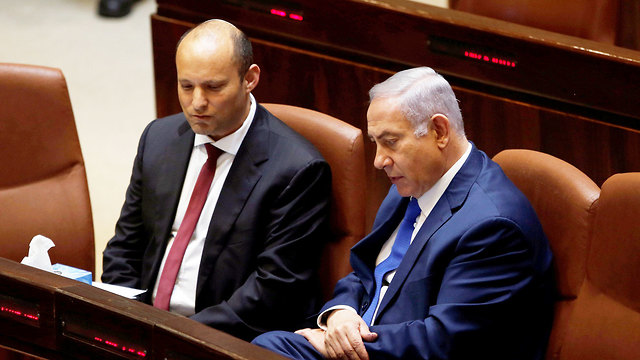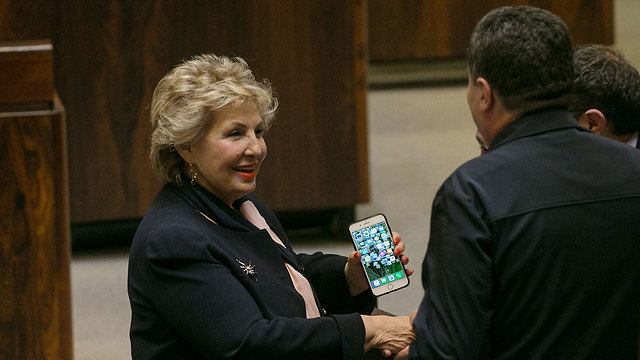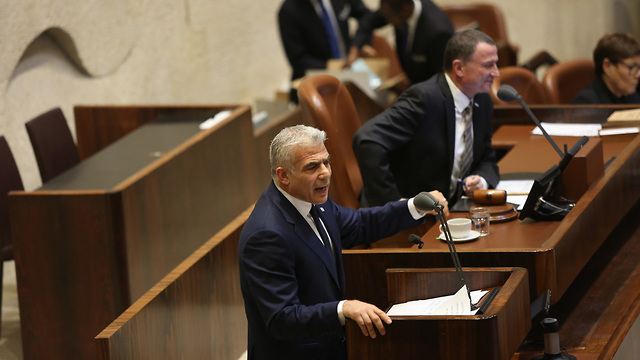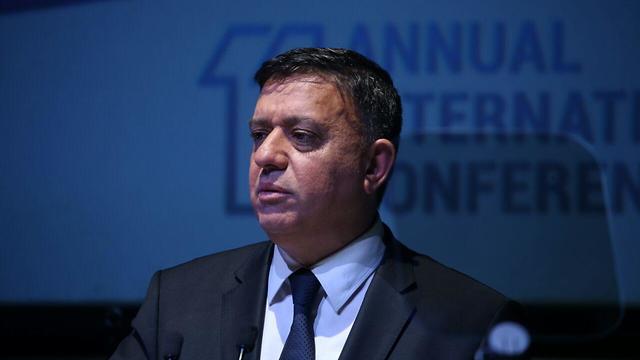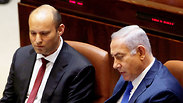
The last-minute agreement managed to see off the most serious crisis to date that had beset the coalition and threatened to drag the nation into early elections.
The deal managed to strike a delicate balance between the warring parties, ensuring that the conscription bill passed the same evening in its preliminary reading in the Knesset Plenum, but all factions were given carte blanche to vote as they please.
“Common sense won. The national interest prevailed. I praise the members of the coalition who were partners in the solution to this crisis. We will continue to serve Israel. We have a lot of work before us,” Bayit Yehudi leader Naftali Bennett wrote on his Twitter account.
Speaking to the cameras at the Knesset after the Ministerial Committee for Legislation unanimously approved the deal, Bennett insisted that from the outset the crisis could have been avoided.
“There was no basis for a real crisis. Sometimes we need to go into the role of the responsible adult and we’re happy to do it. We sat with all the elements of the coalition and we saw that it was possible to reconcile all the friction and solve the crisis. We were not alone in our efforts. To drag the people of Israel into elections two years before it is time, at the cost of billions of shekels, is wrong,” Bennett said.
Deputy Foreign Minister Tzipi Hotovely (Likud) stressed that maintaining the government’s stability until the end of its term was the most important result of the deal.
“The most important thing here is that there is a government that the public in Israel is happy with and that it continues to govern,” Hotovely said.
“The best thing for the public is that there isn’t an election every Monday and Thursday. Our aim was to bring about a situation in which all the partners would act like responsible partners and not like every man for himself,” she added.
Immigrant Absorption Minister Sofa Landver (Yisrael Beytenu), who became a central figure in the crisis as it drew to its conclusion, said that her party’s firm position on the conscription bill was of paramount importance.
“I am happy that this coalition understood that this right-wing government musn’t be brought down. I am sure that all of us understand that for the sake of the state and our youth, we are not compromising,” she said.
Landver was enabled to vote against the bill—as she has threatened to do—without being fired. The decision constituted a departure from a coalition agreement that ministers who vote against its decisions are automatically fired.
The bill passed with a 59 MK majority, with 38 MKs voting against it, including Landver, with no abstentions.
Her party leader, Defense Minister Avigdor Lieberman also expressed his pride in result of the back-and-forth negotiations.
“A word is a word. The deal that we stood for all along has been fully accepted. Yisrael Beytenu will vote against the draft-dodging bill,” Lieberman commented.
Yesh Atid leader Yair Lapid, who was climbing in popularity in the polls, overtaking Zionist Union leader Avi Gabbay, slammed Prime Minister Benjamin Netanyahu for his remarks after the crisis had been resolved.
“Mr. Prime Minister. You ascended the podium and said ‘we decided to continue together.’ This togetherness also includes people who don’t agree with you, the courts and government institutions, even the opposition. This togetherness includes IDF soldiers who you have thrown under the bus of your coalition for a few months in power.”
Speaking to the Knesset after the agreement had been reached, Netanyahu also praised the coalition for weathering the storm.
“I promised to continue the existence of the government and I delivered. I am grateful to my partners in the coalition who demonstrated responsibility so that we can continue to lead the State of Israel with determination and success—in security, in the economy, in social matters and in foreign diplomacy,” Netanyahu proudly proclaimed from the Knesset podium as he addressed the plenum.
Elated with the outcome, the prime minister also turned to members of the opposition—who publicly clamored for elections—and mocked them, insisting that elections would have inevitably resulted in a certain public debasement for them.
“That was scary, eh? The color has returned to your cheeks. I know I have saved you a lot of bitter disappointment because if there were elections I would have returned to this podium and you would have continued to commentate on me from there, because the public support for us is massive,” he said.
While it was unclear whether or not Avi Gabbay wanted elections or not, a statement he issued after the crisis had been brought to its conclusion indicated his disappointment.
“It hurts that the elections were canceled. This bad news means that the situation will not remain as it is but will worsen,” Gabbay said.
“I wholeheartedly believe, even if it takes a little more time, that hope will triumph over fear, the honest people will triumph over the corrupt and the truth will triumph over the petty politics. I believe in our people. It will bring about victory, and we will bring about the change that so many yearn for.”















